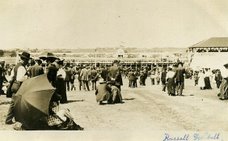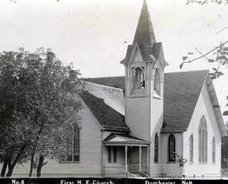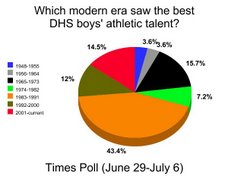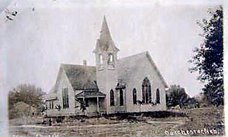 In recent years, small town residents across Nebraska have complained about vacant properties, only to be told by lawyers or judges that there is little the law allows town officials to do about them.
In recent years, small town residents across Nebraska have complained about vacant properties, only to be told by lawyers or judges that there is little the law allows town officials to do about them.
Be warned, vacant property owners: That is changing soon, for both residential and commercial property owners.
An amendment to the bill exempts vacant properties that are advertised in good faith for sale or lease. Also, town officials could conduct inspections of vacant properties.
If OK'd by Dorchester village officials, a vacant property registration ordinance would be adopted. Here is what would happen to owners of vacant properties:
1.) Owners would be require to register a property that has been vacant for 180 days or longer.
2.) An initial registration fee of no more than $250 for a residential property and $1,000 for a commercial property would be assessed.
3.) Supplemental fees would be allowed. Unpaid registration fees and fines would become a lien on the applicable property upon notice to the county.
Developing...
An informed reader tells us the Legislative Bill 256, a bill that would crack down on the problem of vacant properties, has been passed by the legislature and signed by the governor. The bill passed 47-0 on March 15. The governor signed the bill March 21. It will become law of the land on the third week of June.
The
bill, introduced by State Senator Tom Briese of Albion, will provide communities a real tool to address vacant property challenges.
According to the legislature's website and a summary, Legislative Bill 256 would adopt the Vacant Property Registration Act. Under the Act, municipalities would have the authority to enact vacant property registration ordinances (VPROs) to identify and register vacant properties, collect fees to compensate for the public costs of property vacancy, plan for the rehabilitation of vacant properties, and encourage the occupancy of such properties.
According to the legislature's website and a summary, Legislative Bill 256 would adopt the Vacant Property Registration Act. Under the Act, municipalities would have the authority to enact vacant property registration ordinances (VPROs) to identify and register vacant properties, collect fees to compensate for the public costs of property vacancy, plan for the rehabilitation of vacant properties, and encourage the occupancy of such properties.
An amendment to the bill exempts vacant properties that are advertised in good faith for sale or lease. Also, town officials could conduct inspections of vacant properties.
If OK'd by Dorchester village officials, a vacant property registration ordinance would be adopted. Here is what would happen to owners of vacant properties:
1.) Owners would be require to register a property that has been vacant for 180 days or longer.
2.) An initial registration fee of no more than $250 for a residential property and $1,000 for a commercial property would be assessed.
3.) Supplemental fees would be allowed. Unpaid registration fees and fines would become a lien on the applicable property upon notice to the county.
Last year, Greg Ptacek, economic development director for the city
of Neligh, testified in support of the bill. Approximately 10% of
Neligh’s housing stock currently sits vacant, he said. “If we were to take 5% of those houses and put
them back on the market … we would have about 4,000 [more] homes in Nebraska,”
Ptacek said.
Lynn Rex of the League of Nebraska Municipalities also
testified in support of the bill. She said, the bill would give small and medium-sized communities more ways to encourage
owners of problem properties to cooperate with city government and find
solutions. “Financial pressure does work when you’re trying to deal
with vacant properties,” Rex said.
Developing...


















































Who are these people that leave properties vacant for years? They must be paying property tax. Maybe it's time to raise valuations in town instead of just on farm land.
ReplyDeleteThis is sooooo overdue. Not fair to trash a town for cheap storage.
ReplyDeleteThat is a house ive never figured out, they built it and dont think anyone ever lived there
ReplyDelete